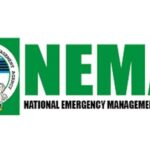Two hundred and seven persons were killed while 221 others sustained varying degrees of injuries in different parts of the country as a result of fire outbreaks from petrol tanker explosions between 2018 and August 2020, Daily Trust investigation reveals.
A total of 31 incidents reviewed by Daily Trust, which were recorded in 15 states also led to the burning or destruction of property, including houses and vehicles, running into billions of naira.
Fire accidents culminating from petrol tanker explosions or spilling of petrol from tankers have become a frequent occurrence in many parts of the country with experts expressing concern over the rising trend.
Daily Trust reports that the Risk Managers Society of Nigeria (RIMSON) had in October last year expressed concern over the growing cases of petroleum products (liquid and gas) truck explosions on the roads.

Coming on the heels of the October 16, 2019 accident in Onitsha, Anambra State, where a tanker laden with petrol fell in front of the Toronto Hospital near Upper Iweka, spilling its content into the Ochanja Market, RIMSON had implored the federal government to initiate far-reaching measures to stem the menace.
Other stakeholders, including the Nigeria Union of Petroleum and Natural Gas workers (NUPENG), the umbrella body of tanker drivers and Petroleum and Natural Gas Senior Staff Association of Nigeria (PENGASSAN) attributed tanker fire accidents to several factors such as bad roads, drug addiction and recklessness on the part of tanker drivers.
The Federal Road Safety Corps (FRSC) said efforts were being made to tackle the menace. The corps said one of such measures is the establishment of FRSC commands in Tank farms to inspect tankers and certify them to load before they carry any product out.
Recorded cases
The 15 states where the incidents were recorded between January 2018 and August this year, according to our findings, include Anambra, Benue, Cross River, Delta, Ekiti, Gombe, Imo, Kano, Kogi, Kwara, Lagos, Niger, Ogun, Osun, and Oyo.
A breakdown shows that Benue State (North-Central) recorded the highest number of deaths (62) from two cases in which 101 victims sustained injuries followed by Cross River State (South-South), which recorded 60 deaths and 22 injuries from a single case.
Anambra State (South-East) recorded 18 deaths and three injuries from four cases while Niger State (North-Central) recorded 13 deaths and 39 injuries from three cases. Gombe (North-East) recorded 12 deaths from a single case with no death and Ogun State (South-West) recorded 11 deaths from four cases with 13 injuries.
Kogi and Kwara States (both in North-Central) recorded eight deaths from a single case each with seven and zero injuries respectively while Lagos (South-West) recorded six deaths from five cases and four injuries.
Checks also show that Imo (South-East), Kano (North-West) and Oyo (South-West) recorded two deaths each, Ekiti (South-West) and Osun (South-West) recorded zero deaths from one and two cases with four and 12 injuries each respectively.
A yearly breakdown shows that the highest number of deaths arising from petrol tanker fire accidents within the period reviewed were recorded in 2019 with 173 deaths and 161 injuries followed by 2020 (January—August) in which 25 deaths and 25 injuries have so far been recorded. The least cases were recorded in 2018 during which nine deaths were recorded with five injuries. The reduction in the number of deaths between January to August this year when compared to the same period in 2019, could be as a result of measures being taken by the FRSC and NUPENG to address the issue.
Rising incidents of fuel tanker explosions
One of the major fire incidents that jolted the nation was on October 16, 2019, in Onitsha, Anambra State, where a tanker laden with petrol fell in front of the Toronto Hospital near Upper Iweka, spilling its content into the Ochanja Market, more than 500 meters away.
The explosion killed five persons, razed over 40 buildings and 500 shops, and destroyed property worth billions of naira.
The fire, which began at about 12:30 pm on the fateful day and lasted till 7:40 pm, was said to have been finally put out through individual efforts and help from fire fighters from Asaba, Delta State.
Barely 48 hours after the Upper Iweka incident, another tanker exploded along the Enugu/Onitsha Expressway near Omagba, Anambra State.
The fuel-laden tanker according to witnesses fell at Bessoy Filling Station Bus Stop and spilled its content while petrol flowed through an underground tunnel into Heritage Street, Omagba.
Although no life was lost, property including earthmoving machines, two residential buildings and several business outlets were gutted by the fire.
Also, on June 2, 2018, a petrol-laden tanker had a brake failure at Agu Awka Junction in Awka, causing it to somersault and erupt in flames, razing three other vehicles in the process.
A few days later, another petrol tanker went up in flames at a filling station along the Nnewi-Okigwe Expressway in Nnewi. No life was lost in the incident but workers and customers at the filling station were said to have escaped by the whiskers.
Another major petrol tanker accident occurred in Benue State in July last year where at least 45 people were killed and more than 100 others injured when a petrol tanker crashed off the road and exploded as people scooped the fuel.
The truck had overturned close to shops as it was traveling through the village of Ahumbe near Aliade, Gwer-East Local Government Area. The Benue State government later conducted mass burial for persons who were burnt beyond recognition in the petrol tanker fire explosion
In Lagos State, June 27, 2018 remains a black day as a fuel-laden tanker reportedly exploded on the popular Otedola Bridge along the Lagos-Ibadan Expressway, killing more than 10 people and burning over 50 vehicles.
Elsewhere in Rivers State, a tanker conveying petroleum products suspected to be gasoline overturned and exploded around Eliozu Bridge in Obio-Akpor LGA in August 2018, destroying property worth millions of naira.
Again, on December 14, 2018, a petrol tanker fell and went up in flames along the Eleme/Onne axis of the East-West road. The driver of the tanker laden with fuel was said to have lost control after running into a big pothole.
Another fire incident was recorded at Rumuekehi in the Eneka axis of Port Harcourt in early 2019. The fire which involved five petrol tankers was put out by fire fighters mobilised from Agip and Shell.
At about the same time, there was a reported fire incident at Abuloma Jetty when a barge laden with fuel exploded, as well as in Rumuekini, where five petrol trucks were gutted by fire.
Similarly, three persons, among them a woman were said to have lost their lives in September 2019 at Igwurita in Ikwerre Local Government Area of Rivers State, when a tanker laden with fuel fell on top of a 14-seater bus.
Elsewhere in Kogi State, the morning of November 18, 2019, recorded another tragedy at Felele community along the Lokoja-Abuja highway when a fuel-laden tanker lost control due to brake failure and rammed into vehicles. In the ensuing inferno, eight persons lost their lives while seven others sustained injuries.
Factors responsible for accidents-NUPENG, PENGASSAN
The Nigerian Union of Petroleum and Natural Gas Workers (NUPENG) and the Petroleum and Natural Gas Senior Staff Association of Nigeria (PENGASSAN), said they were perturbed by the increasing rate of tanker crashes across the country.
General Secretary of the association, Comrade Afolabi Olawale, in a chat with Daily Trust blamed the development on several factors including human, mechanical and environmental factors.
“In terms of the human factor, we talk about the behaviour of the driver himself. How does he handle the steering? Every year we do training for our tanker drivers. We call it safety on the wheel where we bring the FRSC, LASTMA (Lagos State Traffic Management Agency) and for every location where we have the training, we also bring in traffic control officers of those locations. We bring in fire fighters, police and psychologists to talk to the drivers.
“At each of our units, we have VIOs (Vehicle Inspection Officers) who inspect the vehicles as they go in and the state of the drivers. That’s on the human part and we cannot guarantee totally that we are in control of human beings,” he said.
On the mechanical factor, he decried the influx of fake spare parts in the market, which he said triggers the failure of some of the tankers on the highway. Olawale called on the Standard Organisation of Nigeria (SON) to look into the matter.
The NUPENG scribe said the state of the Nigerian highways is terrible. “Before you take a trip from Lagos to Calabar or Maiduguri and come back, your vehicle is in a total state of disrepair. All these are the contributing factors.
“Aside from that, there is the menace of area boys in Lagos. They mount on the truck to demand a bribe from the driver and threaten to decouple the tanker from the truck. This can be attributed to the incessant falling of trucks on Otedola Bridge.
“And when you see fire happening as a result of a tanker crash, it is because people go there to scoop fuel. In the course of that, they trigger off the fire. So it is beyond the tanker drivers,” he added.
Also speaking, General Secretary of Petroleum and Natural Gas Senior Staff Association of Nigeria (PENGASSAN), Comrade Lumumba Okugbawa, flayed the state of Nigerian roads.
He said the movement of petroleum by rail remains the best solution to reduce the crashes, noting that a train movement for instance could take more than 30 tankers off the road.
Attitude of drivers fuelling incidents – NEMA
The National Emergency Management Agency (NEMA) attributed the incidents to recklessness on the part of the drivers.
It said drivers are often in the habit of handing over their trucks to younger boys or conductors, while they stay back to engage in other activities.
Acting Territorial Coordinator, NEMA, Ibrahim Farinloye, in a telephone chat with our correspondent said, tanker and articulated truck drivers were reckless and do not respect traffic laws.
Farinloye further disclosed that roads do not have roller shoulders where truck drivers can park to rest for a while. He stated that the long journey from the point of take-off to petrol depots is tiring and allows for a leg stretch.
“They are tired before they get to the city centre and some are also on drugs, which makes them sleep while driving. During that split second sleep, the driver would veer off the road and eventually crash into the road medians spilling its content in the middle of the road,” he said.
What we are doing to address menace – FRSC
The Federal Road Safety Corps (FRSC) said it was concerned by the development and was doing everything possible to address it.
Public Education Officer of the Corps, Bisi Kazeem, said the incidents could be linked to non-adherence to safe laden/haulage practices and standards, especially by stakeholders and tanker drivers in the country, inadequate drivers’ training/certification, indiscriminate parking on unauthorised locations due to inadequate parks, lack of standard speed limit devices installed in the tankers, aging trucks and lack of fleet renewal by owners among others.
He however added that the Corps had put in place steps to address the issue. One of which, according to him, is the policy which gave birth to the establishment of FRSC commands in Tank Farms. He also said another measure is the efforts of the federal government on total overhaul of haulage operations in the country.
He added that the Corps embarked on special interventionist operations, which saw the deployment of staff for special patrol operations and mobile court sessions.
Daily Trust also learnt that the Corps is working in synergy with the Vehicle Inspection Office (VIO) to ensure that articulated vehicles are subjected to test and regular checks so as to take off the road, those that are not fit.

 Join Daily Trust WhatsApp Community For Quick Access To News and Happenings Around You.
Join Daily Trust WhatsApp Community For Quick Access To News and Happenings Around You.

